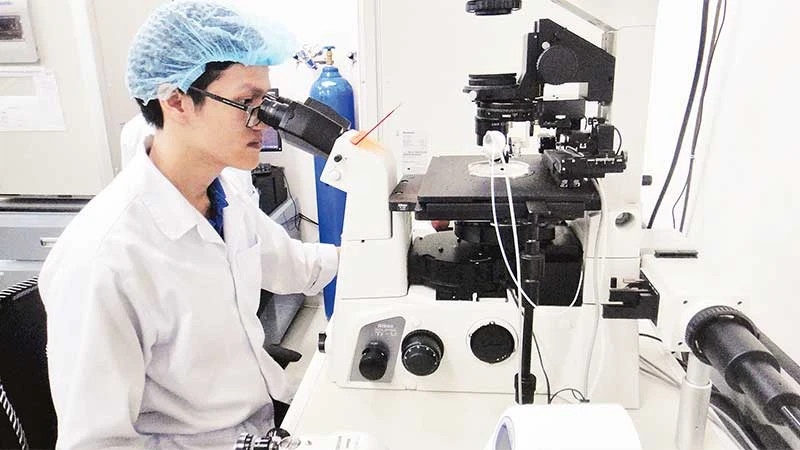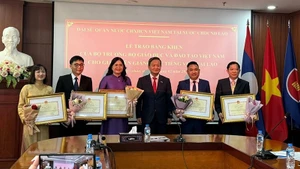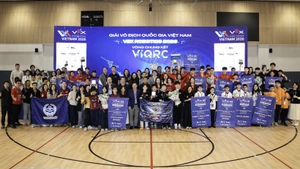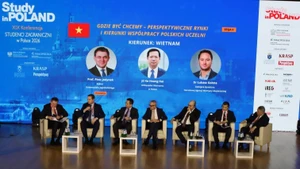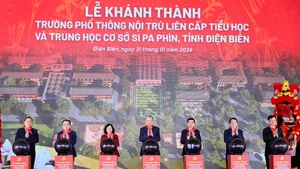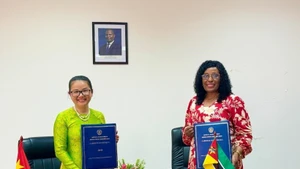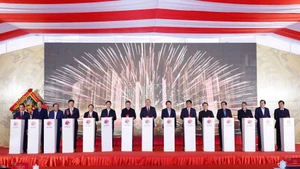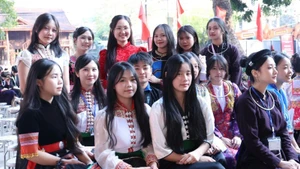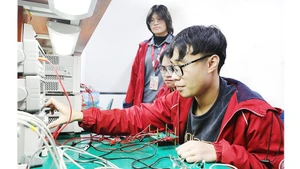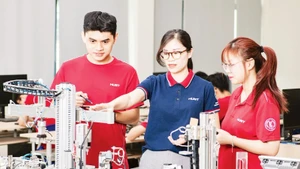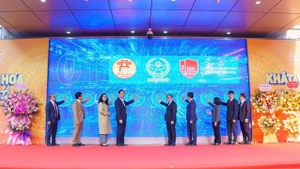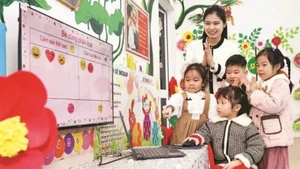Currently, the city is home to about 60 higher education institutions, which bring together a large number of intellectuals and scientists. These institutions play a crucial role in training high-quality human resources, conducting scientific research, and supporting programmes and projects of the city and southern localities to promote socio-economic development.
A “cradle” of national education
To meet the country’s reform requirements, higher education institutions in the city have made ongoing efforts to develop human resources, particularly high-quality personnel.
Many universities have developed training programmes according to high-quality models, such as advanced programmes, talent-oriented bachelor’s and engineering programmes, and international joint training programmes. They have also actively promoted university-business cooperation and connected their training with social demand.
At the same time, they have proactively stopped training programmes that do not match learners’ and market needs, while opening new sectors meeting the social demand. Notably, through joint training programmes, universities have become a source, contributing to implementing the city’s programmes and projects.
One example is the master plan on international-level human resource training for the 2020–2035 period, covering eight sectors: information technology and communication; mechanical engineering and automation; artificial intelligence; business administration; finance and banking; healthcare; tourism; and urban management.
The city has also ordered the Vietnam National University, Ho Chi Minh City (VNU – HCM) to develop a master plan on building the city into a national and regional centre for high-quality human resource training.
In addition, universities have accelerated efforts to renew training content and teaching methods to ensure quality and comply with regional and international standards for education quality accreditation.
For instance, the University of Technology, the Vietnam National University, Ho Chi Minh City, has enhanced training quality through internationalisation (international joint training programmes), achieving positive results.
These programmes have enabled lecturers from partner institutions to teach directly at the university, while many students and lecturers have had opportunities to study and conduct research at partner universities. This has helped the University of Technology access and selectively adapt foreign curricula.
According to Professor Doctor Mai Thanh Phong, Rector of the University of Technology, in the 2021–2025 strategic plan, the university has identified the “on-site” education internationalisation strategy as a key one to further improve training quality and meet international labour market demands.
To implement this strategy, the university has prioritised resources for raising English proficiency standards, strengthening English-language training programmes, exchanging lectures and students, enhancing research collaboration, and participating in international academic networks.
Towards becoming a regional training hub
Higher education institutions in Ho Chi Minh City have contributed to fundamental and comprehensive reforms in education and training, meeting the requirements of international integration.
In particular, universities play a leading role in training high-level human resources for the city through a variety of activities, thereby fostering rapid and sustainable development for the city, as well as enhancing the global competitiveness of the Southeast region and the southern key economic zone.
However, the number of joint training programmes remains modest and does not match the development potential of the universities. While the number of high-quality human resources has increased significantly, it still fails to meet the demands of modern and emerging technology sectors. The number of scientific personnel at universities is uneven and lacks leading scientists in high-tech, digital technology, and artificial intelligence. Moreover, forecasting and analysis capacity of human resources and the labour market remains limited and incomplete.
Dr Ho Ba Tham from the Viet Nam Association for Human Resources and Talent Development in Ho Chi Minh City branch, noted that, amid the global explosion of the Fourth Industrial Revolution, many emerging technologies such as new materials, big data, machine learning, the Internet of Things, cloud computing, artificial intelligence, digital technologies, nuclear energy, and quantum technologies are creating new and non-traditional sectors, that requires specialised human resources to meet development demands.
To develop the city to become a centre for high-quality human resource training for both the region and the country, experts said that universities must continue to develop and comprehensively reform education and training, from objectives to content, teaching methods, organisation and management, towards a professional education system aligned with international standards. This requires investing in building a team of highly qualified scientific and technical staff and offering competitive incentives to attract experts and scientists from both within and outside the country.
At the same time, a national human resource standards system should be developed for various economic sectors, especially those identified as spearhead sectors, to serve the digital transformation process of all industries.
